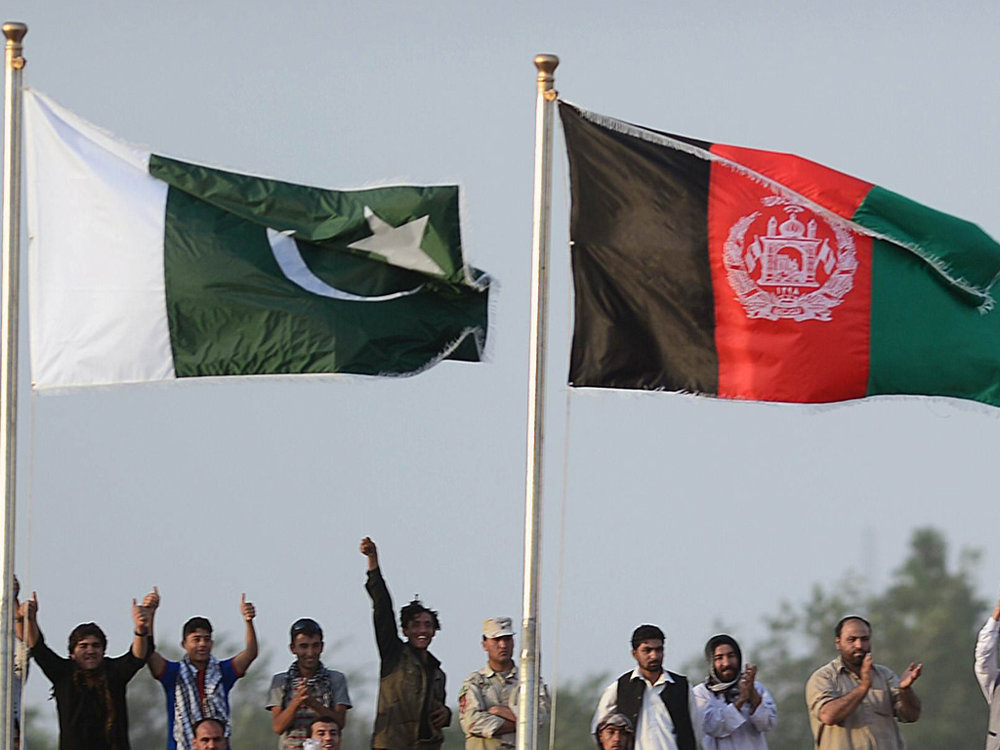By: Waqas Ahmed

When the names of Pakistan and Afghanistan are taken together, it often brings a sense of strained relations to mind. Even though they share a lengthy border and a history marked by complex interactions, the recent developments from Islamabad further strained the relations between Islamabad and Kabul.
In a recent press release, The Interior Minister of Pakistan, Sarfaraz Bhuggti, issued final notice to Afghan nationals residing in Pakistan illegally to leave Pakistan by the 31st of this month. Minister Bhuggti also voiced concerns about the involvement of some of these individuals in criminal activities and acts of terrorism within Pakistan. He made a shocking statement that during this year, out of 25 terrorist attacks, 14 were carried out by Afghan nationals. The Taliban interim administration spokesman, Abdullah Mujahid, reacted strongly to the press release. He asked Pakistan to rethink the decision by labelling it an intolerable decision. He rejected the notion that Afghan refugees are involved in criminal activities.
Pakistan opened its doors to Afghan refugees during the Afghanistan War of 1979. By the end of 2001, about four million refugees were residing in Pakistan. Since 2002, a significant number of refugees have been returned to Afghanistan. As per Minister Bhughti, 1.7 million are still living in the country. According to the United Nations, 880,000 possess legal documentation. As more than forty years passed, subsequent families settled here. Marriages and births continued to occur, as many had never seen any country other than Pakistan and often lacked access to fundamental rights such as legal, healthcare, education, and property rights, leading to miserable living conditions.
Within one month, more than 1 million had to leave the country, creating a chaotic situation for the Afghani refugees, who are reluctant to leave the country as Afghanistan grapples with its most severe crises. People suffer for the one-time meal, girls are deprived of educational opportunities, and schools, colleges, and universities remain inaccessible. The Taliban government lacks enough resources to sort out these issues and to address the refugee arrival. This influx of refugees poses significant challenges for the Afghan government, requiring billions of dollars to provide for their settlement in the country that is already struggling to meet even the most basic needs of its citizens.
The Afghan government faces cold-hearted support from the two major regional players, Pakistan and India. India is unwilling to accept the Taliban government’s near future violation of human rights, and even the Afghan government has to close its embassy in Delhi due to the lack of support from the Indian government. This development left the Afghan nationals in India confused and uncertain about their future.
The surge in terrorist activities has contorted Pakistan’s relations with Afghanistan in 2023. The Tehreek Taliban Pakistan (TTP) has been responsible for many terror attacks within Pakistan. According to the reports, the planning and coordination of these attacks have their origins in Afghanistan. Pakistan has been grappling with the challenge of combating these terrorists, but the presence of safe houses in Afghanistan continues to pose significant problems.
Pakistan has repeatedly urged Afghanistan to put a stop to the use of its territory for launching attacks against Pakistan. However, Afghanistan has not taken these allegations seriously, further straining the already tense relations between the two nations. Implicating Afghan nationals in terrorist activities in Pakistan has worsened the situation and added oil to the growing conflicts between the two countries.
Pakistan is also addressing the issue of smuggling and illegal cross-border trade between these two nations. The daily occurrence of goods smuggling occurs mostly from Pakistan to Afghanistan, commodities such as wheat, sugar, and electronic instruments. Reports suggest that up to 5$ million are smuggled into Afghanistan regularly. Notably, the smuggling of dollars from Pakistan to Afghanistan significantly contributed to the economic crises in Pakistan. This substantial sum poses a significant challenge for Pakistan, grappling with a struggling economy marked by record-high inflation. The exchange rate for the US dollar has surged to 320 Pakistani rupees, while petrol prices have surpassed 300 rupees per liter. These economic challenges have profoundly impacted the livelihoods of ordinary people in Pakistan.
Pakistani authorities have taken substantial measures to curtail smuggling across the boundaries. Mr. Bhuggti emphasized the gravity of the situation and vowed to handle those engaged in these criminal activities with utmost seriousness. He has gone as far as to assert that even security forces found involved in smuggling will be subject to arrest and trial in martial courts.
The robust crackdown on smuggling has yielded fruitful results. Most notably, a significant reduction in the exchange rate of the US dollar from 320 rupees to 278 rupees. The concerted efforts have led to a reduction in the prices of petroleum products. Moreover, the prices of essential everyday items have steadily decreased, offering some relief to the general populace.
Both countries are home to Pashtuns, fostering a profound and historical connection, and they have a rich history of shared culture and traditions.it is essential to resolve the issues related to refugees, smuggling, and terrorism through diplomacy. The prosperity of these nations is intertwined, underscoring the importance of approaching these relations with a sincere commitment to resolution. The Afghanistan government must grasp the seriousness of the situation. Pakistan has many challenges, and the refugee issue only compounds the government’s difficulties. Furthermore, Afghanistan holds the key to addressing the issue of terrorism. In the past, various administrations pledged not to let their territory be used against other nations. Yet they failed to resolve the recent attack by militants in Chitral, targeting customs officers combating smuggling and illegal cross-border trade. It shows that the neighboring countries are utilizing Afghanistan’s current situation. The Afghanistan government must address these issues and prioritize legal trade, putting those involved in the smuggling behind bars.
The writer is a freelance columnist. He can be reached at [email protected]















